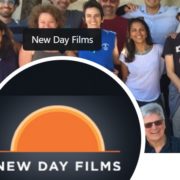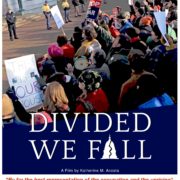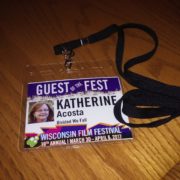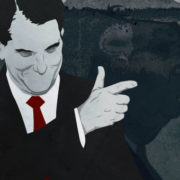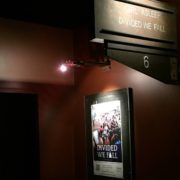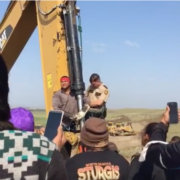As a first time filmmaker, I’m very grateful and honored that the editor of the Progressive, Ruth Conniff, was willing to take a look at our film on the 2011 Uprising, Divided We Fall, and offer her thoughts. One part of her opinion piece on the next step for progressives following this year’s general election particularly caught my eye. Conniff describes our film as “dispiriting” and invokes the late great historian Howard Zinn to warn against “ideological purity” among progressives. Citing her 2004 interview with him, Conniff describes Zinn’s position:
You can be part of a movement that criticizes Democrats from the left, and also vote for the least-worst option at the polls…. Movement politics is a long-term effort, not to be confused with short-term campaigns.
In a verbatim quote from that 2004 article, Zinn says:
I’m arguing that social action is more important. But it doesn’t mean that who’s in the White House is of zero importance.
Writing in the Progressive in 2008, Zinn expands on this idea:
Would I support one candidate against another? Yes, for two minutes—the amount of time it takes to pull the lever down in the voting booth.
But before and after those two minutes, our time, our energy, should be spent in educating, agitating, organizing our fellow citizens in the workplace, in the neighborhood, in the schools. Our objective should be to build, painstakingly, patiently but energetically, a movement that, when it reaches a certain critical mass, would shake whoever is in the White House, in Congress, into changing national policy on matters of war and social justice (emphasis added).
In that same article, Zinn goes on to explain that New Deal policies of the 1930s were “not simply the result of FDR’s progressivism”- that strikes and other bold actions, such as defying the police to resist evictions, were crucially important.
It’s worth remembering that FDR was in office and collective bargaining for private sector workers was the law of the land when auto workers launched the great Flint sit-down strike in 1937. But FDR took a hands-off approach (reminiscent of President Obama’s inability to find his “comfortable walking shoes” and join Wisconsin workers in 2011!) Striking workers had to summon the strength and tenacity to occupy GM’s Fisher Body #1 plant for 44 days to force unionization of the auto industry.
The Flint strikers also had the advantage of time to craft a strategy – something activists here in Wisconsin did not have in 2011. On the fly, thousands of people brought their creativity, ingenuity, and intelligence to bear creating one of the largest sustained protests – and the only occupation of a state capitol – in US history. Our film is intended to both celebrate that action and to critique – with the goal of starting a conversation about how we can win next time.
Already, activists in La Crosse have contacted us about screening our film as part of a series of events to kick off a progressive agenda in conjunction with the Millennials March. This is exactly the way I hoped this film would be used.
Significant social change has never occurred without sustained direct actions. As Zinn told Bill Moyers:
We’ve never had our injustices rectified from the top, from the president or Congress, or the Supreme Court… No. The changes, important changes that we’ve had in history, have not come from those three branches of government. They have reacted to social movements.
I agree with Conniff that when we’re done “obsessing” over Trump, it’s time to get to work building a grassroots movement for social change.
Don’t miss what is probably the last chance to see Divided We Fall this year at the Driftless Film Festival on November 4th!

